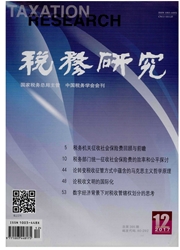

 中文摘要:
中文摘要:
预算法常有“财政宪法”之美誉,究其原因在于,预算法是管理政府之法,而非政府之工具,本次全国人大常委会修改我国《预算法》,其深远意义已完全超出了文本修订之意。本文认为预算公开的根本功能是维护纳税人权益,这是制度设计的法益起点;同时能间接地制约与规范行政机关的财政活动,在一定程度上也可督促立法机关更好地履行其预算职权。深层次看,预算公开的功能意义在于,强化纳税人的参与,优化国家治理结构和治理能力。预算公开的制度设计,应当同时包括预算文本意义和过程意义的公开,公开对象既包括普通纳税人,也包括作为其受托人的人大代表。同时,本文指出,现阶段应继续在破解预算公开的制度性障碍、拓深公开的力度、堵住新法可能存在的制度漏洞和补足规范缺失等四个方面,下足功夫,使预算公开进程能超越静态文本,不断深化。
 英文摘要:
英文摘要:
The budget law is deemed as the financial constitution. This is because that the budget law is a regulate administrating the government's act rather than a tool used by the government. The amendment by the NPC Standing Committee on Chinese budget law has its profound and lasting meanings and shall pass beyond its context revision. This paper believes the fundamental function of the budget disclosure would be maintenance of taxpayers' rights and interests which should be the starting point of legal interest in the institutional design. In the meanwhile, it would indirectly restrict and regulate the activities of administrative organizations, and would to some extent supervise legislature's better performance of its budgeting authority. Perceived at a profound level the functional significance of the budget disclosure is to strengthen the participation of taxpayers and to optimize the governing structure and competence of this country. The institutional design of the budget disclosure should include both the budget content and process disclosure, of which the target includes general taxpayers and the trustee the NPC member as well. The paper points out four aspects to make great effort continuously to break through institutional obstacles of budget disclosure, take even further the disclosure extent, plug any possible existing institutional vulnerabilities in the new law and complement of lacking regulations to promote the process of budget disclosure advanced beyond its static content and deepen further.
 同期刊论文项目
同期刊论文项目
 同项目期刊论文
同项目期刊论文
 期刊信息
期刊信息
